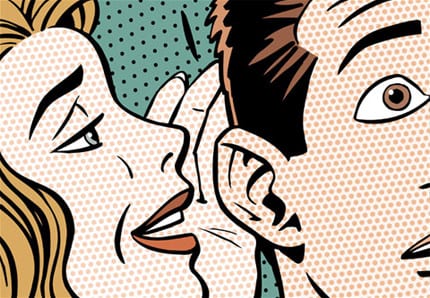Helen: Hello and welcome to The English We Speak from BBC Learning English, I'm Helen. With me today is quite a frustrated-looking Neil. Neil, what are you doing to that mobile phone?
Neil: Argh, I can't get it to make a phone call. It does everything else: it takes photos, it connects to the internet, it even irons my shirts but it won't make a call!
Helen: Your mobile phone irons your shirts?
Neil: No, not really, but honestly it does everything apart from the one thing I want it to do – make a phone call. It's a joke!
Helen: A joke? But you're not laughing. It can't be a very funny joke.
Neil: Well if you say something is a joke in English it can also mean that it's not very good or not worthy of respect.
Helen: Yes, 'joke' has a second meaning.
Neil: Argh, I can't get it to make a phone call. It does everything else: it takes photos, it connects to the internet, it even irons my shirts but it won't make a call!
Helen: Your mobile phone irons your shirts?
Neil: No, not really, but honestly it does everything apart from the one thing I want it to do – make a phone call. It's a joke!
Helen: A joke? But you're not laughing. It can't be a very funny joke.
Neil: Well if you say something is a joke in English it can also mean that it's not very good or not worthy of respect.
Helen: Yes, 'joke' has a second meaning.
Example:
Helen: As you heard there in the example, the person described an investigation into police corruption as a joke. This doesn't mean it was funny. It means it wasn't serious. Also the weather forecast was so bad it was described as a joke.
Neil: Notice that you can add words before 'joke' to make the meaning even stronger. It's a complete joke.
Helen: A complete joke.
Neil: It's a total joke.
Helen: A total joke.
Neil: It's an absolute joke.
Helen: Anyway Neil, why don't you just read the instructions for your new mobile phone? Then you'll probably be able to work out how to make a call.
Neil: I looked at the instructions but they're an absolute joke.
Helen: Oh really?
Neil: Well for a start they are in about 17 languages apart from English.
Helen: What a joke!
Neil: Yeah I know.
Helen: Well we've heard lots of jokes in today's programme but there hasn't been much laughing.
Neil: Argh, what a useless piece of …
Helen: Let's hope Neil finally works out how to use his phone.
Neil: Argh, this is beyond a joke, it really is…
Helen: Join us again for The English We Speak.
Neil: Argh, mobiles…
Neil: Notice that you can add words before 'joke' to make the meaning even stronger. It's a complete joke.
Helen: A complete joke.
Neil: It's a total joke.
Helen: A total joke.
Neil: It's an absolute joke.
Helen: Anyway Neil, why don't you just read the instructions for your new mobile phone? Then you'll probably be able to work out how to make a call.
Neil: I looked at the instructions but they're an absolute joke.
Helen: Oh really?
Neil: Well for a start they are in about 17 languages apart from English.
Helen: What a joke!
Neil: Yeah I know.
Helen: Well we've heard lots of jokes in today's programme but there hasn't been much laughing.
Neil: Argh, what a useless piece of …
Helen: Let's hope Neil finally works out how to use his phone.
Neil: Argh, this is beyond a joke, it really is…
Helen: Join us again for The English We Speak.
Neil: Argh, mobiles…



